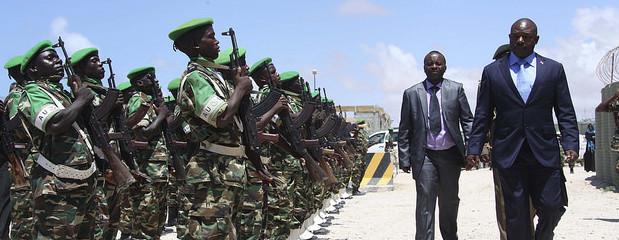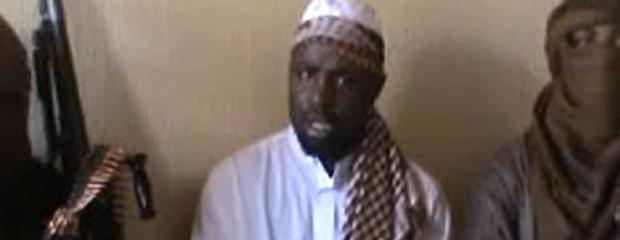Are international actors steering the right course in Burundi?

The African Union and UN appear to have found a new sense of urgency, but Burundi’s current crisis will only be resolved if it is seen as part of a longer legacy.
Olivier* was studying at the University of Burundi in April 2015 when unrest began to escalate in the country following President Pierre Nkurunziza’s decision to run for a third term. With opponents insisting the president’s move was unconstitutional, both protests and the government’s repressive response intensified.
In June, after seeing his father and cousin killed in front of him, Olivier fled Bujumbura. He left with his sister and her small daughter. They travelled through Rwanda, but did not dare stop there. “We feared the violence would follow us,” he says now at a refugee camp in Uganda, traumatised and with no idea of what the future holds.
Olivier’s story is far from unique in Burundi. Burundians have lived for years – and in Olivier’s case, all his life – with the presence or threat of war. Prior to his recent arrival in Uganda, for instance, Olivier had already been displaced five times, despite only being in his late-twenties. He has also witnessed many past atrocities. “In 1993, when I was a little boy, I saw people burned to death and I had to hide among the dead,” he recalls. In 1998, he was almost killed, he tells African Arguments, showing the scar on his head from where he was burnt.
Olivier’s story today is part of a larger crisis which has already forced 200,000 people to flee the country and left 79,200 internally displaced. Back in Burundi, bodies are turning up on a daily – or nightly – basis. According to the UN High Commissioner for Human Rights, at least 400 people have been killed since 26 April. Olivier and other Burundian refugees told stories of how, one-by-one, individuals who took part in the protests – or others who were known to belong to opposition parties – were arrested, disappeared and/or killed by police and the government’s notorious armed youth wing known as the Imbonerakure (meaning “those who can see from far”).
However, opposition elements have also employed violence. On 11 December, armed groups launched a coordinated attack on three military installations, killing 87 people. There are allegations that refugees are being recruited and armed from neighbouring Rwanda (a charge Rwanda denies), but whether there is truth to this or not, the attack was evidence of how quickly Burundi’s political opposition is becoming militarised.
The deadly assault was a powerful symbol of the fragile line separating the current crisis from civil war. And it appears to have forced the attention of the international community.
The AU force
Last week, the African Union Peace and Council (AU PSC) responded forcefully to the situation in Burundi by authorising the deployment of 5,000 peacekeepers, an extraordinary move for the continental body. The AU PSC invited the UN Security Council (UNSC) to support the mission, but while the Council quickly issued a press statement, it stopped short of a full resolution.
The AU PSC nevertheless gave the government of Burundi 96 hours to accept the mission, indicating that if they refused, it would recommend to the AU Assembly that action be taken under Article 4(h) of the Constitutive Act.
Although the AU PSC is reportedly still waiting for an official response, Burundi’s position seems abundantly clear. A presidential spokesman has said, “If AU troops came without the government’s approval, it would be an invasion and occupation force, and the Burundi government would reserve the right to act accordingly.” Burundi’s parliament has meanwhile urged the government “not to mortgage the sovereignty” of the nation.
The ball therefore appears to be firmly in the AU’s court and it remains to be seen whether it can muster the sufficient international support to push the Burundian government to change its mind. In the negotiations in the run up to the previous UNSC resolution on Burundi in November, Russia, China and Venezuela opposed language threatening sanctions, with Russia also expressing reservations about the UN engaging in contingency planning for a possible mission. The positions of these governments could be enough for Burundi to maintain its defiant posture. However, a strong AU position has been useful for overcoming divisions in the UNSC in the past and might be useful again if the AU can conduct strong diplomacy.
Either way, many questions remain. If the Burundian government maintains its current position, how will the AU will respond? Will it attempt to force troops in regardless? If they do, the 5,000-strong force would clearly be outnumbered by Burundian armed forces, estimated in June to number 20,000 with 31,000 additional paramilitary forces.
Even if the Burundian government does accept the force, huge challenges will remain. Continued pressure will be needed to ensure the mission is not stonewalled at every turn. And with just 5,000 troops and a limited budget, it will struggle to protect a population of nearly 11 million living in a deeply divided society in a country wrestling with the aftermath of several previous rounds of war. A mission could play a vital role in providing protection, but amidst myriad challenges, it would require careful planning as well as strong international support, politically and financially.
In it for the long run
Even if successful, it is important to note that the AU mission is only designed to protect civilians during conflict, rather than resolve the conflict itself. Recognising the need to promote resolution of the conflict, the AU PSC communiqué which authorised the force also reaffirmed the need to strengthen the ongoing mediation, led by Uganda.
The UNSC also highlighted the need for an intensification of the mediation efforts, saying: “a genuine and inclusive dialogue, based on respect for the Constitution and Arusha Agreement, would best enable the Burundian stakeholders to find a consensual solution to the crisis facing their country.”
In mediating, it will be critical to look at the current crisis in its historical context, as one episode in Burundi’s tumultuous post-colonial history from the violence of 1972 (which some term ‘genocide’) to the decade-long civil war in the 1990s. The failure to deal with legacies of violence and injustice, including the failure to adequately support the return and reintegration of those who fled before, has now merged with the increasingly violent abuse of political power to form the contours of Burundi’s current political crisis.
Can the new mediation address these root causes – particularly given President Yoweri Museveni’s key role in the process – and, if so, how? Furthermore, how can the international community ensure that these are not only addressed in the text of an eventual agreement, but on the ground in a way that affects the lives of ordinary Burundians like Olivier?
It is encouraging that the international community is starting to take notice, and their action is urgently needed. It is too late for the estimated 400 people who have already been killed, but it is not too late to prevent further deaths. This action must, however, be prudent, comprehensive and committed in the long run if it is to be effective. There will be no quick fix for the crisis in Burundi.
* names have been changed to protect interviewees’ identities
Lucy Hovil is a Senior Researcher at International Refugee Rights Initiative. Follow her on twitter at @LucyHovil.





The AU and the International community are wrong on Burundi. If they want to know the truth, let them consider the history of the country since its independence. They have forgotten that those in power have lived in exile. Who sent them there? Or, what democracy lesson can Yoweri Museveni teach Burundi and the region? Do they mean Nkurunziza should have changed the Constitution like Kagame, Museveni and Sassou of Congo Brazaville? Why is there no AU pressure on them if democracy is the issue?
AU is just misleading themselves. They missed what to do. Let them first tackle those who changed the constitutions before they can face Burundi.
Come on John you can do better than that. I don’t agree with all these African presidents carrying out constitutional coups Kagame included. Museveni is bad so is Nkurunziza we have violence because he is killing those civilians who don’t agree with him. AU has absolute responsibility to stop that.